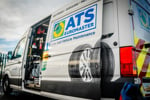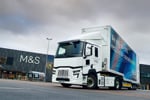Drivers need to be aware of what is included as part of a rental package – and it is up to the fleet manager to ensure the information is passed on to them. In a bid to make drivers more aware of the inclusions in rental contracts, the British Vehicle Rental and Leasing Association (BVRLA) has produced a new guide to renting vehicles.
Although the guide is aimed at consumers, the BVRLA says it can be used for any driver using a rental vehicle and is an ideal checklist for fleet managers to pass on to drivers.
John Lewis, director general at the BVRLA, outlined some of the key points drivers should be aware of when using rental vehicles.
He said: ‘Check the car over before you drive away and make sure that any damage is noted on the rental agreement by the rental company. Just as importantly, when you take the car back, make sure the rental company inspects it and you both agree if there is any additional damage on the vehicle. This is the only sure way to avoid any disagreements on damage.
‘Drivers should also carry out the other parts of the rental agreement such as returning the car with a full tank of fuel, if that is what is stipulated. Expect a charge otherwise. And, while rental companies do not expect vehicles to come back immaculately clean, they will charge if they show signs of misuse or excessive dirt, such as heavily soiled carpets.’ The BVRLA’s guide contains advice on renting including insurance, damage, return condition, fuel and what to do in the event of a complaint.
The key points from the guide can be given to drivers to ensure a hassle-free rental.
Rental checklist
Rental agreement
Vehicle condition
Insurance
Fuel
To view the full guide on renting visit www.bvrla.co.uk and click on ‘Guide’.















Login to comment
Comments
No comments have been made yet.